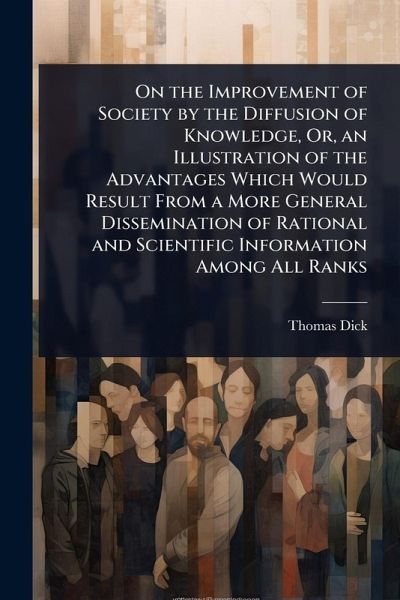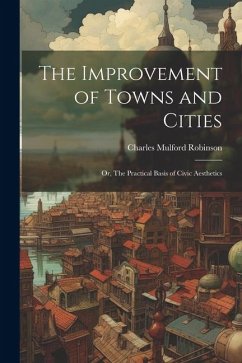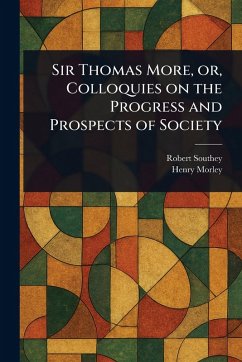
On the Improvement of Society by the Diffusion of Knowledge, Or, an Illustration of the Advantages Which Would Result From a More General Dissemination of Rational and Scientific Information Among All Ranks
Versandkostenfrei!
Versandfertig in über 4 Wochen
27,99 €
inkl. MwSt.
Weitere Ausgaben:

PAYBACK Punkte
14 °P sammeln!
In "On the Improvement of Society by the Diffusion of Knowledge," Thomas Dick passionately argues for the transformative power of widespread education and access to scientific information. Published in 1833, this work reflects the 19th-century belief in progress through knowledge. Dick envisions a society elevated by the dissemination of 'rational and scientific information among all ranks, ' leading to moral and social betterment. The book explores the practical advantages of a more enlightened populace, examining how increased knowledge can positively impact various aspects of life, from per...
In "On the Improvement of Society by the Diffusion of Knowledge," Thomas Dick passionately argues for the transformative power of widespread education and access to scientific information. Published in 1833, this work reflects the 19th-century belief in progress through knowledge. Dick envisions a society elevated by the dissemination of 'rational and scientific information among all ranks, ' leading to moral and social betterment. The book explores the practical advantages of a more enlightened populace, examining how increased knowledge can positively impact various aspects of life, from personal conduct to civic engagement. Dick's work is a valuable historical document, offering insights into the social and intellectual currents of the early 19th century. It remains relevant for those interested in the history of education, the philosophy of social progress, and the enduring quest for a more informed and enlightened society. This work has been selected by scholars as being culturally important, and is part of the knowledge base of civilization as we know it. This work was reproduced from the original artifact, and remains as true to the original work as possible. Therefore, you will see the original copyright references, library stamps (as most of these works have been housed in our most important libraries around the world), and other notations in the work. This work is in the public domain in the United States of America, and possibly other nations. Within the United States, you may freely copy and distribute this work, as no entity (individual or corporate) has a copyright on the body of the work. As a reproduction of a historical artifact, this work may contain missing or blurred pages, poor pictures, errant marks, etc. Scholars believe, and we concur, that this work is important enough to be preserved, reproduced, and made generally available to the public. We appreciate your support of the preservation process, and thank you for being an important part of keeping this knowledge alive and relevant.





![A Genuine And Faithfull Account Of The Sufferings, Of W. Houlbrook. To Which Is Added, A Learned Speech Made By A Worthy Member Of Parliament [a.a. Cooper] Cover A Genuine And Faithfull Account Of The Sufferings, Of W. Houlbrook. To Which Is Added, A Learned Speech Made By A Worthy Member Of Parliament [a.a. Cooper]](https://bilder.buecher.de/produkte/56/56667/56667652n.jpg)

![Letter to the King, in Which the Conduct of Mr. Lenox [sic], and the Minister, in the Affair With His Royal Highness, the Duke of York, is Fully Considered Cover Letter to the King, in Which the Conduct of Mr. Lenox [sic], and the Minister, in the Affair With His Royal Highness, the Duke of York, is Fully Considered](https://bilder.buecher.de/produkte/52/52689/52689852n.jpg)




